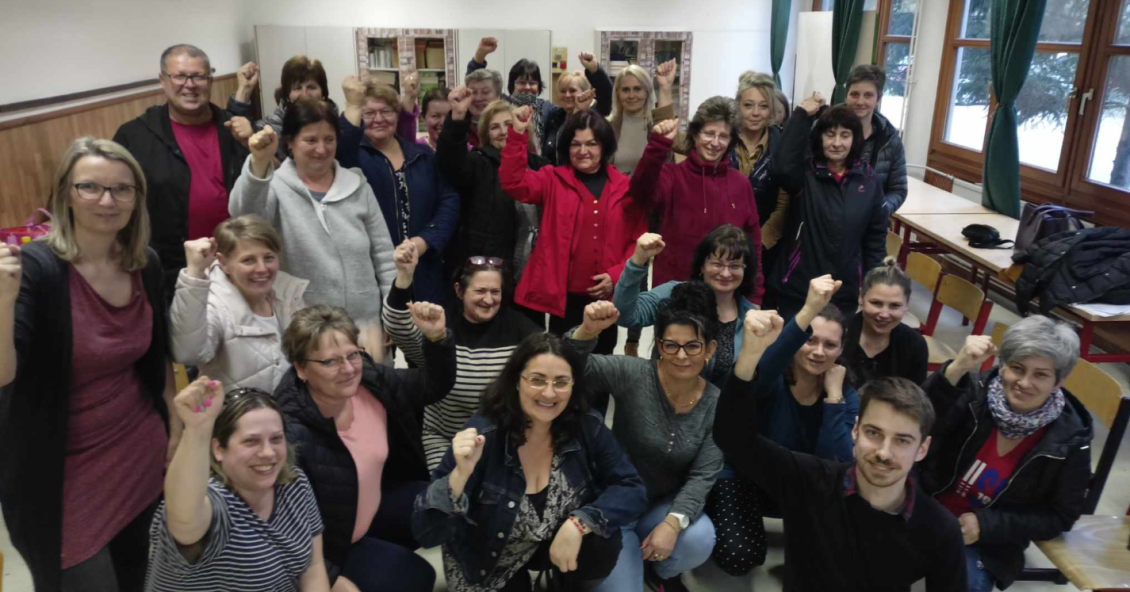Hungarian care workers unite to form new union, demand fair wages and respect
15.05.24
Amidst increasing challenges, a new Hungarian care union, SZÁD, has been established, marking a pivotal shift in advocacy for care workers’ rights in Hungary. This development comes as care professionals across Hungary, often overlooked and underappreciated, mobilize to demand fair wages and improved working conditions.
“We have unionized because we realized that we have to stand together and move together to achieve real change,” stated Hajnalka Kanyó, the secretary of SZÁD’s new chapter in Balassagyarmat. This Northern Hungarian town’s social care center has become a focal point for the union’s activities, where nearly all of the 40 staff members, providing vital services such as home assistance and psychiatric care, have shown robust support since the union’s formation in late March.
The union’s efforts highlight a broader national trend where care workers are uniting to confront a cost-of-living crisis and seek the respect their roles demand. “Organizing is never easy but these new SZÁD members made their collective voice heard,” remarked Alan Sable, Head of UNI Global Union’s Care sector. He described the Balassagyarmat chapter as a beacon of hope and a critical step in fortifying the sector for both employees and the individuals they support.
Supporting these initiatives, UNI’s Central European Organizing Centre (COZZ) is aiding long-term care workers in Hungary by providing training, capacity building, and organizing staff. SZÁD’s strategy includes establishing local unions across Hungarian care facilities to enhance working conditions and care quality, aiming to transform these positions into sources of decent employment.
Echoing the sentiment of proactive change, Kornélia Koplányi, the chapter’s Vice-Secretary, emphasized, “So far we have only been complaining – now we are taking action.” This statement underscores the union’s transition from frustration to active engagement, setting a course for substantial reform in the care sector.


